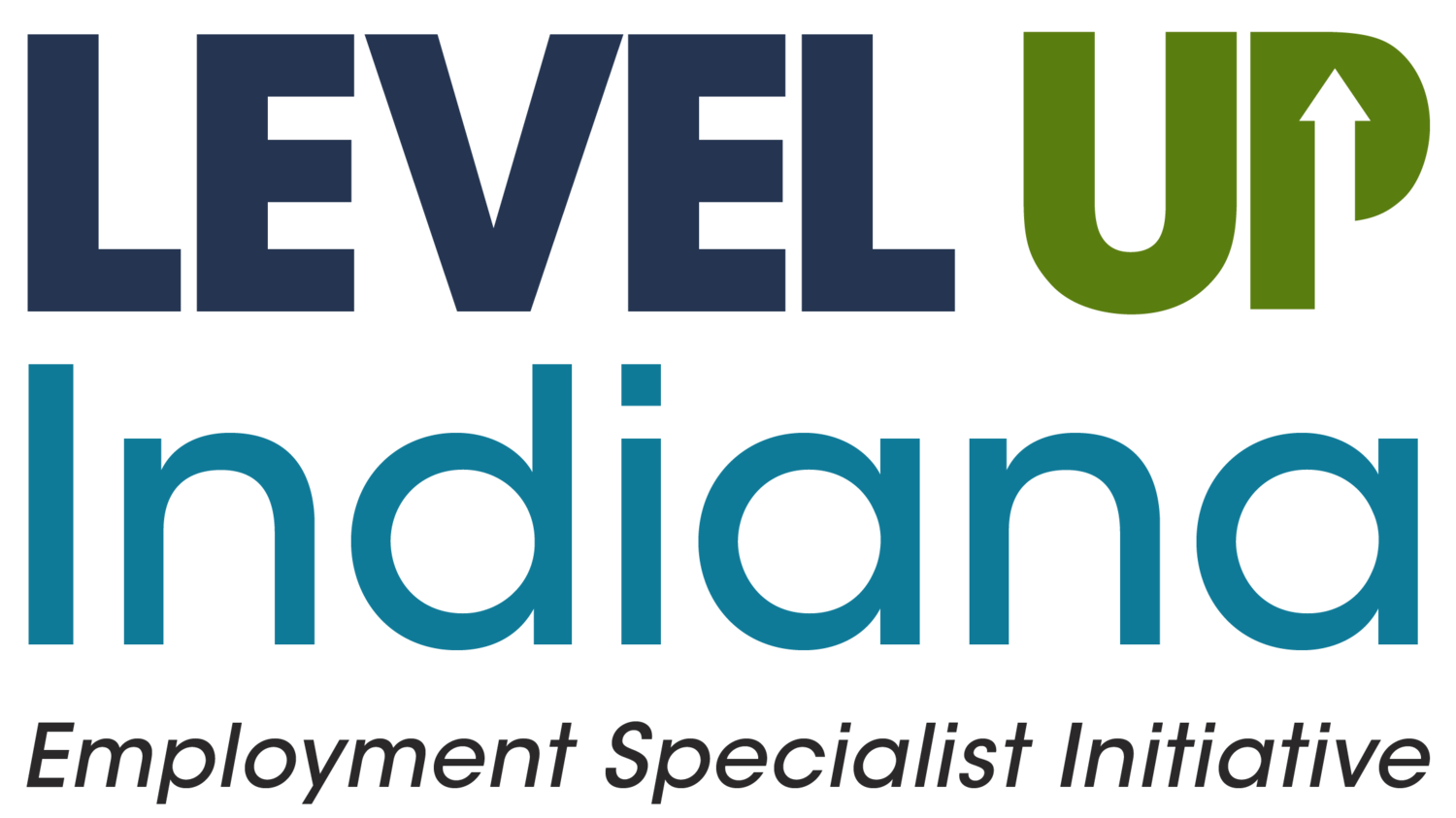
Mental Health Resources
Find out the basics about mental health through these videos, seminars, and presentations.
Learn to Support Mental Health Too
Employment service professionals do not just provide support for physical needs. Mental health can play a big role in employment outcomes too.
Below you’ll find resources on anxiety, depression, individual placement and support, and advice for Community Mental Health Centers.
Mental Health, Employment, and Executive Dysfunction Part 1 and Part 2: Memory, Flexibility, Control, Planning, Reasoning, and Problem Solving
Our brains are working all the time! Watch Part 1 and Part 2 of the May and June Lunch and Learns where we discuss Executive Functions.
We covered:
Core and higher-level Executive Functions,
Learn about Executive Dysfunction Symptoms,
How symptoms may impact employment,
Discuss ways to structure support and intervention
Dissociation: How it Can Look and Be Managed
Our brains have a remarkable capacity to store memories. At times, memories can cause trauma and other disabilities can trigger brain processes that function as mechanisms to protect us from harm. One of these processes is called dissociation. Dissociation happens when the processes that usually happen together are disconnected. A disconnection happens between the memory and thoughts, memories, feelings, actions, and a sense of who we are surrounding that memory. In this presentation we learn about dissociation and how to spot the signs and symptoms. Learned strategies to assist individuals develop skills needed to self advocate as they work towards their employment goal.
Unhelpful Thinking Patterns and Their Effect on Employment
Everyone has unhelpful thinking patterns that are not helpful in problems solving and conflict resolution. However, with some mental health conditions they can be especially prevalent and affect a person’s daily life. In this webinar, we discuss common cognitive distortions including overgeneralizing, catastrophizing, and personalization. These unhelpful thinking patterns can affect how we work towards our goals, the quality of our relationships, and our quality of life.
Addictions Impact on Employment and Coping Skills
According to the American Addiction Centers, Americans with disabilities are at a greater risk for substance use disorders and many have SUD and a co-occurring disability. SUD has a tremendous negative impact on many life domains including employment.
In our April Lunch and Learn, we discussed the mechanism of SUD, gained understanding to why people living with disabilities may be at greater risk, and explored traditional and non-traditional methods of helping people with disabilities identify healthy coping skills to prevent and minimize SUD. Click the button below l to learn about:
Characteristics of substance use disorder
Addiction’s impact on work
Coping strategies
Sensory Processing: Creating an Environment to Thrive
Do you know what autism, ADHD, dyslexia, and post-traumatic stress disorder have in common? The answer is: sensory processing differences. These are just a few disabilities that commonly affect sensory processing. People process and react to sensory stimulation differently. Some people are more sensitive to sensory stimulation while others are under responsive. This can result in behaviors that are either sensory seeking or avoidant. However, just like with other human needs, a person’s sensory needs and how they process stimulation can change. Factors such as stress, the environment, and co-occurring disabilities affect how sensory information is received. In this webinar, we will discuss:
What disabilities commonly affect sensory processing
How sensory processing is affected by other factors too
Recommended practices and environmental considerations for the workspace
Are you from a Community Mental Health Center?
Learn how you can expand your employment service options for the people you serve.
Are you from a Community Mental Health Center?
Learn how you can expand your employment service options for the people you serve.
Individual Placement and Support
Learn more about the basics on Individual Placement and Support (IPS), a model of supported employment for people with serious mental illness.
The Intersection of Obsessive-Compulsive Disorder & Intellectual/Developmental Disabilities
People with intellectual/developmental disabilities experience obsessive compulsive disorder (OCD) equal to or more than people without disabilities. The cycles that come along with OCD can significantly affect someone’s quality of life. In our January Lunch & Learn, we will explore how OCD and related disorders can affect people with intellectual/developmental disabilities. Some related disorders include body dysmorphic disorder and hoarding disorder. Join us in January to learn about:
What obsessions and compulsions are most common
How OCD can affect individuals across the lifespan
Similarities and differences between OCD and autism
Intersection of Anxiety & Intellectual/Developmental Disabilities
It is common for individuals with intellectual/developmental disabilities (IDD) to experience anxiety.
This video covers the many types of anxiety such as generalized anxiety, social anxiety, and panic disorder.
Learn about how anxiety and IDD can interact, explore real-life examples, and find out about some ways you can support individuals with IDD who are affected by anxiety.
The Intersection of Depression & IDD
Individuals with intellectual/developmental disabilities (IDD) may also experience depression. This video covers different ways depression can affect people, including some practical examples.
You’ll learn about the latest research on depression, along with some recommendations on ways you can provide support.
The video also covers factors that can cause or worsen depression, including how transition can affect depression.
The Intersection of Bipolar Disorder & Intellectual/Developmental Disabilities
Each year, millions of adults in the United States are personally affected by bipolar disorder- including people with intellectual and developmental disabilities. Bipolar disorder can significantly impact a person in many ways such as with employment, relationships, and physical health. There are also many ways people can learn to manage their bipolar disorder too. We invite you to join this webinar to learn about these strategies. Participants who attend will also hear about
different kinds of bipolar disorder,
how it can present differently in people with intellectual disabilities, and
myths and truths surrounding bipolar disorder.
The Intersectionality of Domestic Violence & Intellectual/Developmental Disability
There are many kinds of abuse: physical, emotional, verbal, psychological, sexual, and financial/economic. People with intellectual/developmental disabilities (IDD) experience them all. However, it can be especially difficult for people with IDD to access domestic violence services. This is why it is important to learn about how to recognize and respond when someone with IDD discloses abuse.
Topics discussed:
Signs and how disability-specific abuse can look
Common reasons why people with IDD do not report
Services and how to report in Indiana
The Intersection of Personality Disorders & Intellectual/Developmental Disabilities
In this webinar, participants will learn what a personality disorder is and the many kinds there are. Although each personality disorder is different, they all affect how a person thinks, behaves, and reacts. Participants will hear about the impact’s personality disorders can have on the lives of people with intellectual/developmental disabilities, including the many ways employment can be affected. Join us in April to learn about personality disorders such as:
Topics discussed:
Obsessive-Compulsive Personality Disorder
Narcissistic Personality Disorder
Borderline Personality Disorder
Dependent Personality Disorder
The Intersection of Schizophrenia Spectrum Disorders and Intellectual/Developmental Disabilities
Delusions and hallucinations are only some symptoms associated with schizophrenia. In this webinar, participants will learn about the variety of symptoms a person with schizophrenia can experience. Participants will also learn about other disorders on the schizophrenia spectrum and how employment can be affected. Some topics that will be discussed are:
Topics discussed:
Early signs of schizophrenia
How symptoms can change with age
Accommodations and considerations for employment
A Trauma-Informed Accessibility Approach & How It Can Help Everyone
There are many factors that affect how accessible services are to people, such as language and location. Trauma is another one of these factors. Trauma can affect a person’s physical and mental health. It also affects how we engage with and navigate our surroundings. Most people will experience a traumatic event and people with disabilities are at an increased risk. Being aware of how trauma can impact a person and applying that knowledge can improve accessibility of services. Likewise, using an accessibility approach can improve services for people who are affected by trauma too.
Managing Anxiety in the Workplace
Anxiety can have many different causes and almost everyone experiences it to some degree. People can experience anxiety when starting a new job, talking to a crowd of people, or when they have a performance review. For some people, anxiety can get in the way of applying for a job at all.
In this workshop style webinar, participants will:
Learn about different ways anxiety and employment can overlap
Learn about strategies for managing anxiety in the workplace
Have the chance to share and learn from other participants
Self-Esteem and Self-Image: How They Connect and Affect Employment
“I can’t do anything right. I shouldn’t even try.”…“Nobody likes me.”… “I’m not as good as them. I should quit.”
Do these statements remind you of job seekers you support? Mental health conditions often cause a disconnect between how we view ourselves and who we want to be. Self-image and self-esteem issues often result in negative self-talk, internalized racism and self-fulfilling prophecies that impact employment. This lunch and learn will focus person-centered practices that you can use to support people to develop healthy self-esteem and self-image that assist them to overcome these barriers to successful employment
Navigating Emotions at Work: Self-Management and De-Escalation Strategies
There are many factors that can contribute to emotional reactivity. For example, autism and ADHD can affect emotional regulation in unique ways. For some people, it can be especially difficult to regulate their emotions and it can have significant impacts on their life. Angry outbursts, self-harm, substance use, and depression are some examples of how emotional dysregulation can look. Disorders related to emotional dysregulation include bipolar disorder, borderline personality disorder, and obsessive-compulsive disorder. In this webinar, participants will learn about the importance of differentiating between whether emotional reactivity is related to a symptom or trying to communicate needs through behavior. Additionally, participants will learn about:
The range of ways mental illness and disability can affect emotional regulation
Self-regulation strategies for managing our own emotions
De-escalation techniques for when someone else is in distress
Accommodations and considerations related to emotional dysregulation in the workplace
Triggers and Employment: Considerations and Strategies to Support Individuals
You have probably heard the words “trigger” and “triggered” before, but what does it really mean? In general, triggers can be anything that causes symptoms to start, return, or worsen. In this Lunch and Learn, we will discuss how can triggers can look for a range of diagnoses, in addition to post-traumatic stress disorder. Participants will also hear about:
How existing triggers can affect employment
How trauma and triggers can develop in the workplace
How to support someone experiencing post-traumatic stress before and when they have a job



